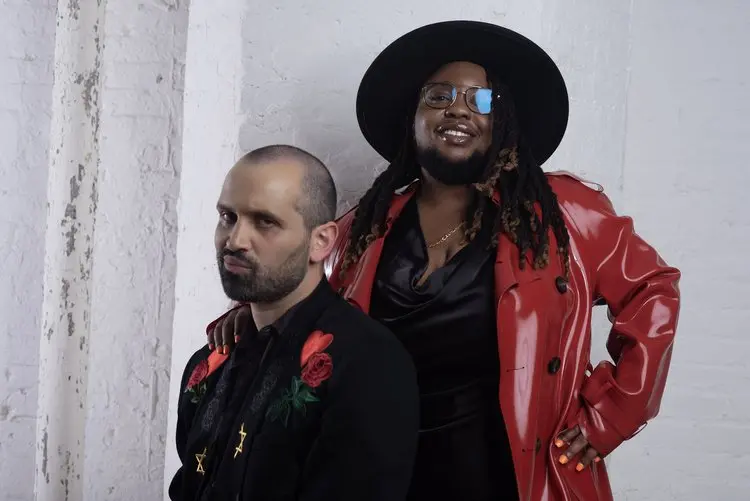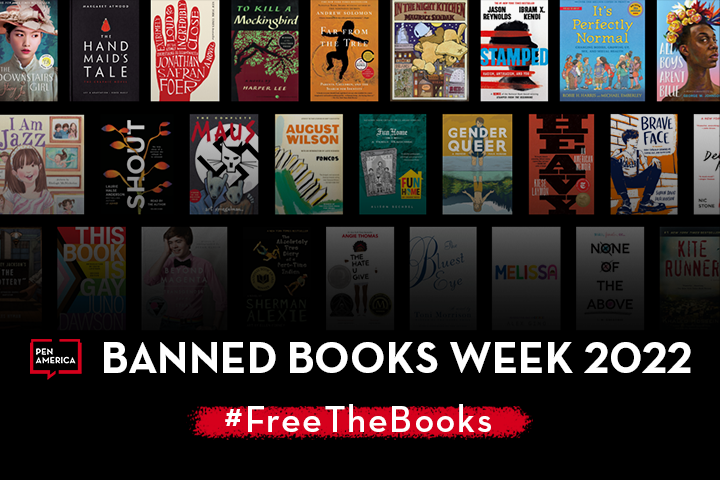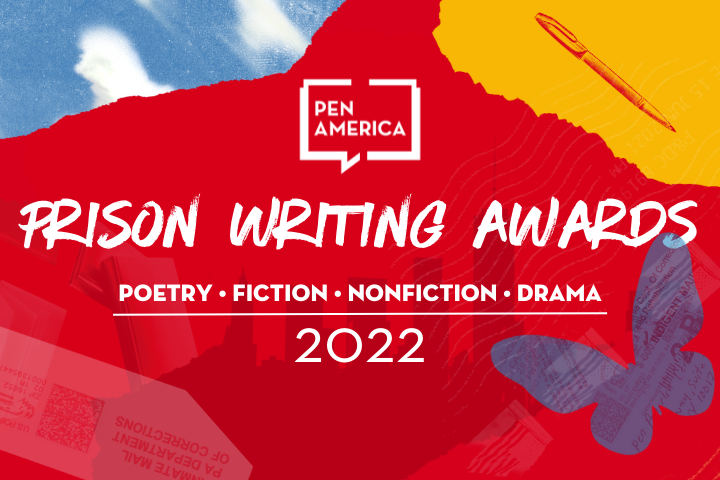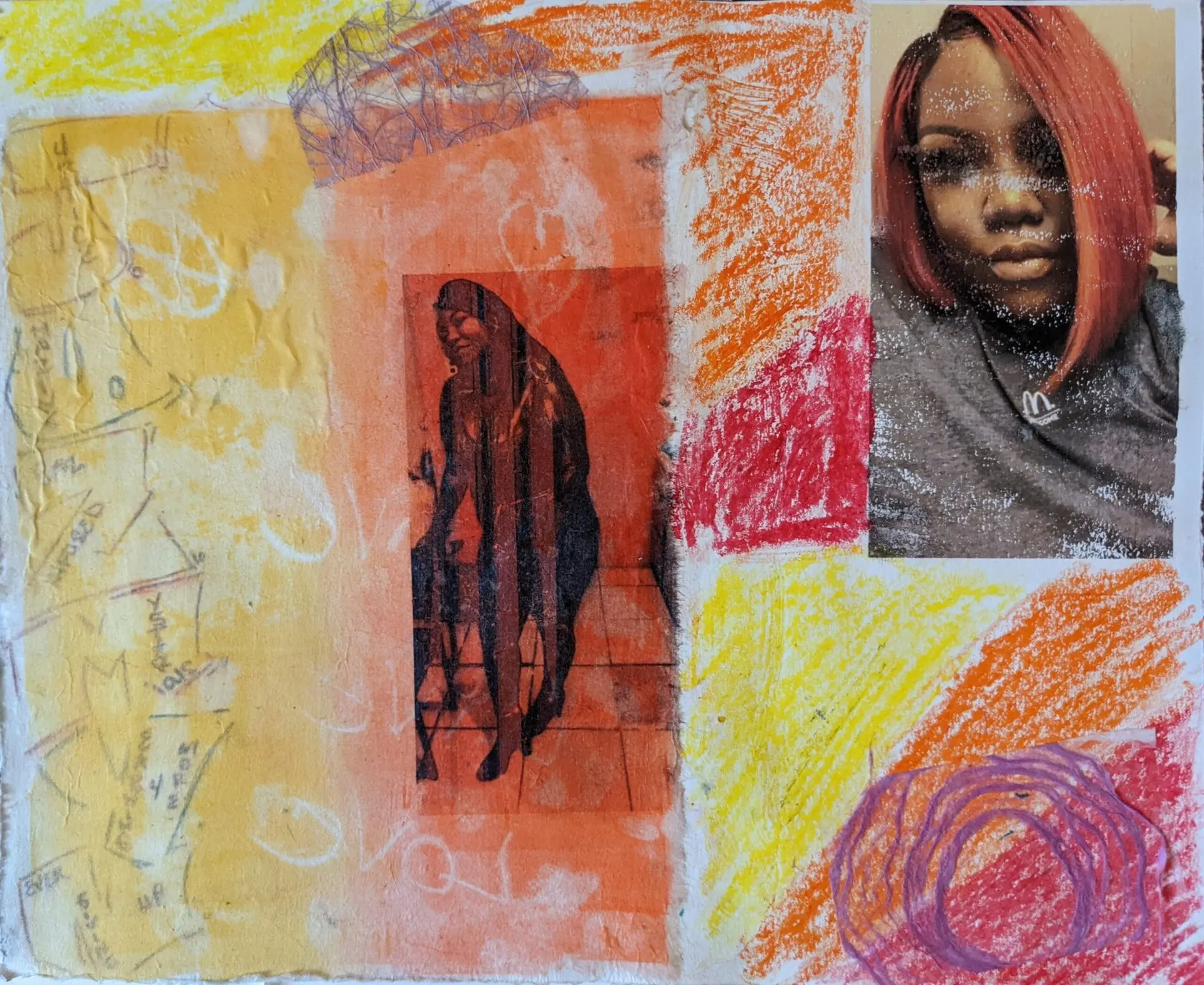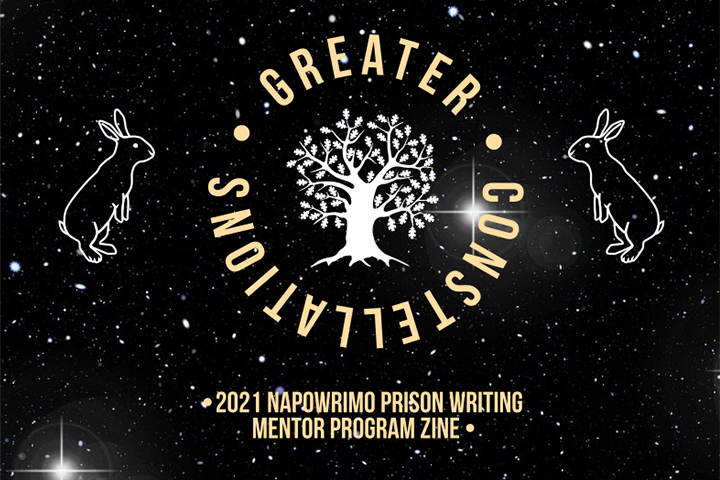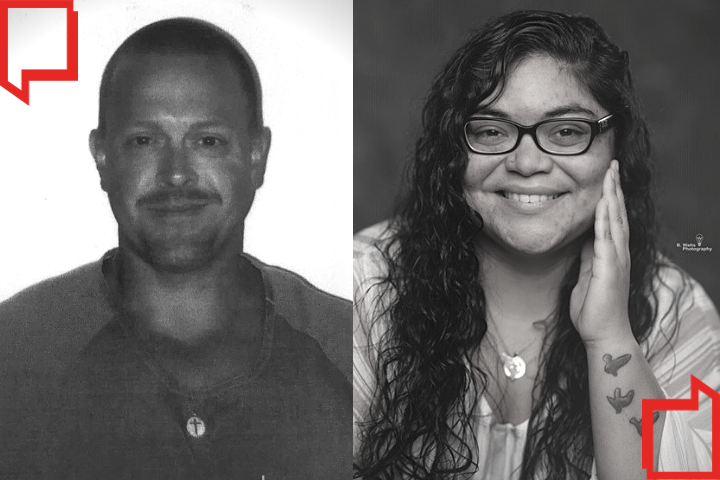Emile DeWeaver has work to do. The forty-three-year-old writer, father, community organizer, educator, journalist, artist, lecturer, and freelance abolitionist workshop facilitator has recently taken on a few new titles. Amongst them: author (a manuscript of his memoir is due to his publisher next summer,) and filmmaker (he’s currently co-directing a five-part documentary series on abolitionist theater). With so many projects in the works, it almost seems as if DeWeaver is making up for lost time.
In some ways, he is. Emile DeWeaver spent the first two decades of his adulthood in prison, sentenced at the age of eighteen to serve sixty-seven years to life. Not one to stand still, Emile began his sentence with a pen and a plan, writing op-eds, literary fiction, sci-fi, and essays. He told his story and fought for others to tell theirs. In 2015, he banded together with two other writers at San Quentin— Rahsaan Thomas and Juan Meza— to form the nonprofit Prison Renaissance, which aims to amplify and connect incarcerated artists.
Eventually, DeWeaver’s words and activism earned him the attention of former California Governor Jerry Brown, who commuted his sentence in 2017.
In PEN America’s The Sentences That Create Us: Crafting A Writer’s Life in Prison (Haymarket Books, 2022), a widely-acclaimed anthology primarily consisting of justice-involved contributors, DeWeaver writes about the art of building smooth transitions between paragraphs, lines, ideas, and sentences. I caught up with him as he was in the midst of several transitions of his own: buying a home in Atlanta, moving between South Carolina and California for documentary shoots, and packing for Burning Man, a music festival where he was preparing to lead a free workshop on “abolitionist strategies to develop policies and programs.” We spoke about growing up in the Bay Area, change, stasis, and the limits and power of art in activism. Our conversation has been edited for clarity and length.
Burlock: In reading your piece for Sentences and a lot of your other work, I am really interested in this idea of transitions, both the very literal, mechanical, writerly transitions that you discuss in your essay and the wider transitions you’ve gone through in your life. In particular, you have said that you became a writer at the same moment you became, by society’s standards, a prisoner—that you turned to writing as a tool to survive the trauma of both your sentence and the violence that you were sentenced for. What has it been like to form an artistic identity, for the first time, outside the confines of prison?
DeWeaver: I don’t feel that my artistic identity or my character has changed since leaving prison. Incarceration helped me to develop as an artist only in the regard that the more deeply you are oppressed, the more clearly you see the mechanisms of oppression and how they function without all of the window dressing. My vision, my sight, and my sensibilities are informed by the desire to expose those mechanisms—they were informed by that in prison and they are informed by that now. I’ve just continued to build on what I already built.
Burlock: When you started writing in prison, you only had access to an old typewriter and had to keep reusing old ribbons and writing on the back of scrap paper. You also covertly organized to pass legislation that changed the way California treats juveniles in its criminal legal system at a time when political organization within the state was criminalized. I understand that your sensibilities as an artist and activist haven’t changed with your incarceration status, but would you say that your day-to-day practice has? Do you find it easier to work when you aren’t facing such material artistic and political repression?
DeWeaver: I actually don’t think you face more artistic repression in prison. I mean, I understand what you’re saying, right? That there are ways in which you are freer in prison and there are ways in which you aren’t, but overall, I would say that I don’t have more artistic freedom being free. Because if you think about prison as a form of control and isolation that is an extension of white supremacy and how we continue to perpetuate it, one would think that, ‘oh, you get out of prison and you’re free from that.’ But no, you just enter a different form of it.
Like I live in the Bay Area, right? And to live in the Bay Area, there’s a certain amount of work that you’re going to do every day just to sustain a basic standard of living— and it’s going to be more than eight hours, right? Maintaining the pace of work that is required for survival in this system keeps us so engaged that it’s just another kind of control. But we may not see it like that because we’re being paid well and we can conceivably do what we want.
I worked in tech two, three years. We had unlimited vacation time, which anyone in tech would tell you is a complete scam. People with unlimited vacation time rarely take vacations— and when we do we’re stressed the fuck out the whole time! So there are ways in which I could choose to be free. But, the trick of oppression is to set up a system that incentivizes and coerces your choices so that you perpetuate your own oppression. Capitalism is one of those systems. So, yes, I’m free in some ways, but in other ways I’m less free than I was in prison. Like everybody else out here I’m surviving in capitalism. That does not leave you that free to practice art.
Burlock: That’s such a powerful and unsettling way of reframing this discussion of artistic freedom—and one that, I agree, hits particularly hard in the context of the Bay Area where the ideals of freedom, that are so definition to the region’s historical self-image, are so brutally contradicted by the economic reality of living in such an expensive landscape. I also grew up in the Bay Area and feel like I am constantly writing, reading, and hearing about the ways that the Bay has changed, particularly within my own lifetime. If my math is correct, you received your life sentence the year I was born. I’m curious, speaking generally of transitions, what changes have you noticed returning to Oakland after twenty-one years?
DeWeaver: Oh, my God. Oakland is so different—and I have such a complicated relationship with it that has changed in the four years I’ve been out. It’s much whiter than when I left it. Oakland is amid a process of gentrification. No one I grew up with in Oakland can afford to live in Oakland.
It’s pretty tragic. You know, Oakland has a long history of being a deeply political place. It’s political and radical. White supremacy has a pretty well-established mechanism of co-opting revolution and tweaking it into something that just continues to support oppression though it might have the aesthetics and the narratives of liberation. You find that in Oakland, in the woke culture and identity politics, and cancel culture. Because it sits in Oakland or with people who are adjacent to Oakland and the East Bay, it gains a certain kind of legitimacy as revolutionary, just because geographically where it’s coming from, which is just another hat trick of white supremacy.
Burlock: Do you see this sort of dressed up politics of oppression as a distinct phenomenon that emerged while you were incarcerated or was it something that you were aware of in Oakland that became amplified in the time that you were physically separated from your home community?
DeWeaver: I mean, it’s a distinct change that comes with an influx of white people— well-meaning and bad-meaning. But to be fair, Oakland was not a very political place when I left it. I was recently talking to a radical activist from Philly about the differences in how we grew up. And on the east coast, a lot of people grew up a lot more politicized and were always politicized. Even if they were in the streets committing crimes, they understood what was happening. Whereas, I didn’t experience that access to political thought when I was a kid. And I was mourning that with him. I was like, ‘man, I was in my thirties before I started coming across the political thinkers from Oakland and the Bay Area.’ And he said ‘Yeah, you guys had some heavy hitters and the reason why you never heard of him growing up is cause the state completely annihilated them.’ So the Oakland I grew up in was the Oakland annihilated by the state, not the Oakland that was the political home of the Black Panthers.
Burlock: So you didn’t have much exposure to formal political thought as a young person; did you have access to other modes of political and personal expression? What was your experience with art writing and activism like before you were incarcerated?
DeWeaver: I’ve always been into art and artistic expression. I was always finding manifestations of art to practice, whether it was like piano or music or keyboards or rap. I was a rapper at one point when I was kid; I was a comic book nerd, and always considered the dancer of the family. I think I learned this in retrospect: I’ve lived a life full of a lot of powerlessness, a lot of violence, a lot of instability. And art is a practice of power, in so many ways. Whether it’s the power of creation, whether it’s the power of connection, there’s just so, so many ways that creation functions to make a person feel power and enact power and can have an active will in the world.
But with the writing thing—I have always known that I was good at writing. I had some really powerful examples in my life of that. Like, when I was growing up, my dad, he was a very scary dude. And he was super patriarchal in a biblical sense. We got allowance based on our age and doing chores like hauling bricks. So, my dad had this girlfriend who had this son. Long story short, my brothers and I hated this kid because we felt like my dad treated him better than us. So, we were lined up to get our allowance money one day and this kid—we can call him ‘Johnny’ for the sake of this story—Johnny gets in line right with us and we’re all looking at each other, like, man, this fool don’t do no chores! What is this fool doing in line?
Burlock: In line to get the allowance money?
DeWeaver: Yes! He lines up behind me cause he’s a little younger than me. And so Eddie, the oldest, gets $20. Tim gets $10. And I get $5 and then Johnny, he got twenty dollars.
It was like a silent riot in that room. Me and my brothers were just like looking at each other, rubbing our chest and kinda kicking our feet and regulating our breaths. We were like: this will not stand.
My brothers decided that I would be the one that has to confront my dad, and risk the pain of him kicking my ass. You know, we’re pretty scared of him. So I wrote him a letter, left it on his bedside desk, and then went and hid in my closet. When my dad found me, he was in tears. It’s the only memory I have of my dad actually saying, ‘I’m sorry,’ when we were children. And the next day, his girlfriend moved out. To me as a kid that was like—let me put it this way: one did not move my father. My father moved the world. But the fact that this letter had such a big impact on him, that I had used something that always sat in my body to change my world—that taught me that my writing was powerful. Writing could do miracles. That was a miracle, to that young kid.
So, when I got sentenced to life, I was just eighteen and I had my own kid. I couldn’t quite be okay with never going home again. And I was sitting in that cell and I was like, well what can I do? I relied on the only thing that I knew I had. My plan was: I’m going to write my way out of prison. And then that’s where it started, the writing career.
Burlock: And so you used writing quite literally as a tool to emancipate yourself, it sounds like. In recent years, particularly since the 2020 protests, there’s been a lot of debate over the power and limitations of art and to a certain extent of academia in the fight for abolition. And I’m wondering if you see writing and education—given that they were tools for your personal emancipation—as effective tools for achieving a more systemic form of justice.
DeWeaver: I want to split that up. Because we need to understand what we mean when we say education. If we’re talking about institutionalized education— high school, college, trade school, master’s degrees, doctorates—that absolutely is not going to get any structural change done. That is, in fact, the process by which the status quo perpetuates itself. So, no to that sort of education. Yes to education when we’re just talking about understanding these systems and waking up.
As for art? To say that art has its limits is like saying the sky is blue; everything has its limits, right? Art is part of a holistic strategy to liberate ourselves—or it can be. Everything has its role.
This idea that one person, or one group, or one thing has got to be the thing that does all the things—it’s just the result of a backwards hyper individualism. It’s a collective process. It takes all people to do this thing. It takes all tools to do this thing. Art is just one of those tools. It’s very powerful. If you are an artist, that’s your lane, get in there and do liberation work. You don’t have to go become a lawyer. No, you have a skill, leverage it, do the thing that you do to liberate us.
There could be someone who’s just like, you know, a semi-sadist and goes to law school. But that’s also skill! Not everyone can do that. Not everyone is suited for that. Not everyone can survive that. And if that’s what you did, you made that sacrifice. Use it!
So, instead of understanding the limitations of what your profession can offer— like yeah, your profession alone can’t really do much to change this system—but there are other people that you can rely on to do that. What is it that you are going to do that contributes to the liberation of us all?
So that’s the same thing with art. If a person has that skill, they need to be using it. For them, that’s the frontier on which they need to continue to press the bounds of what’s possible.
Burlock: That is such a fantastic way of reframing that debate—one that shifts the terms from individualism and nihilism to personal responsibility and collective action. I want those words on a T-Shirt. Thank you so much for your time and I look forward to your book release!
Emile DeWeaver’s creative writing can be found in The Rumpus, Seventh Wave, and the Lascaux Review. His journalism has been featured in the San Francisco Chronicle and Mercury News. He offers workshops on media, power, and policy development and is available for lectures, panels, and talks at https://speakerhub.com/speaker/emile-hehimhis-deweaver.
Charley Burlock is a former intern with PEN America’s Prison and Justice Writing program. She is currently a creative nonfiction MFA candidate and undergraduate creative writing instructor at New York University. Her writing has appeared, most recently, in AGNI and the Los Angeles Review.

